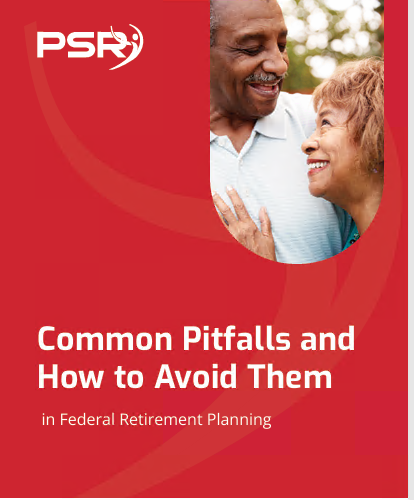Did I miss out on Social Security‘s 5.9% COLA for 2022?
Q: Full retirement age (FRA) was in November of last year, but I haven’t filed yet since I want to enhance my benefit by waiting until at least the middle of this year. However, I’ve heard and read that because I didn’t start collecting in January of this year, I missed out on the 5.9% COLA. Is this correct?
A: You don’t need to begin receiving benefits to obtain credit for the cost of living (COLA) raise implemented in January. Your Social Security
- Also Read: Stretching Out Your TSP Smartly Starts with This Often Ignored Option
- Also Read: Why More CSRS Employees Are Rethinking Their Withdrawal Plans in Light of Recent Laws
- Also Read: Special Retirement Groups Face New Timelines—Don’t Miss Your Critical Retirement Window
In the year you turn 62, Social Security determines your base primary insurance amount (PIA). That PIA is then revised annually to incorporate COLAs, which are compounded. If a person begins taking Social Security benefits at full retirement age (FRA), their PIA equals their Social Security retirement benefit rate.
For example, suppose you reach 62 in 2022, and your base primary insurance amount (PIA) is projected to be $1000. In that example, by the time you achieve your full retirement age (FRA) of 67, your PIA would have climbed to around $1217.10 after rounding.
You would also be compensated for any COLAs after you reach full retirement age (FRA). You could improve your PIA by working and replacing one or more of the years used in your PIA calculation with a higher year of earnings. Also, you might receive delayed retirement credits (DRC) by deferring your benefits until you’re 70 years old.
Will my wife receive half of my benefit if she starts her own benefits at 62 and then switches to spousal benefits?
Q: My husband’s Social Security retirement payment will probably be less than half of mine. Will his spousal benefit be half the amount of my benefit if he claims his benefit at 62 and then changes to his spousal benefit at 67 when I claim my retirement benefit? Or will it be decreased from that level because he started at 62?
A: Your husband cannot move from receiving his retirement benefits to receiving only spousal benefits. Once a person applies for Social Security retirement benefits, the benefits are guaranteed for the rest of their lives. Suppose they become eligible for a greater spousal or survivor benefit. In that case, they can apply for an extra spousal or survivor benefit. Still, they cannot simply move to the other benefit.
So, if he files for his retirement benefit at the age of 62, he’ll receive a lower rate in exchange for commencing her benefits earlier. Once you apply for your retirement benefit, he’ll be eligible to submit for an excess spousal benefit, which will be added to his total reduced spousal benefit and her reduced retirement benefit rate.
His unreduced spousal benefit would be 50% of your PIA, which you would receive at full retirement age (FRA). If he waits until his FRA, her excess spousal benefit won’t be decreased. Still, if he gets spousal benefits before his FRA, his extra spousal benefit will be lowered. His unreduced excess spousal benefit equals 50% of your PIA, less a 100% of his PIA.
When I become eligible, will I be able to switch to my own benefit?
Q: I recently started receiving my widow’s pension at 61. My retirement benefits at 62 will be more than my widow’s pension. Will I be able to transition to my retirement once I’m eligible?
A: You certainly could, but you probably shouldn’t. The only reason switching to your benefits at 62 would make sense is if you have severe health conditions that will significantly limit your life expectancy. Suppose you begin drawing your benefits at the age of 62. In that case, you’ll get a considerably reduced monthly benefit rate for the rest of your life.
Instead, you should seriously consider receiving only your widow’s benefits until you reach the age of 70. After that, you should transition to your retirement benefit. As long as you haven’t claimed your retirement benefit, it will continue to grow each month following your full retirement age (FRA) until you reach 70.
Contact Information:
Email: [email protected]
Phone: 6232511574
Bio:
I grew up in Dubuque, Iowa, where I learned the concepts of hard work and the value of a dollar. I spent years in Boy Scouts and achieved the honor of Eagle Scout. I graduated from Iowa State University and moved to Chicago and spent a few years managing restaurants. I then started working in financial services and insurance helping families prepare for the high cost of college for their children. After spending years in the insurance industry, I moved to Arizona and started working with Federal Employees offing education and options on their benefits. I became a Financial Advisor / Fiduciary to further help people properly plan for the future. I enjoy cooking and traveling in my free time.
Disclosure:
Investment advisory services are offered through BWM Advisory, LLC (BWM). BWM is registered as an Investment Advisor located in Scottsdale, Arizona, and only conducts business in states where it is properly licensed, notice filed, or is excluded from notice filing requirements. BWM does not accept or take responsibility for acting on time-sensitive instructions sent by email or other electronic means. Content shared or published through this medium is only intended for an audience in the States the Advisor is licensed in. If you are not the intended recipient, you are hereby notified that any dissemination, distribution, or copy of this transmission is strictly prohibited. If you receive this communication in error, please immediately notify the sender. The information included should not be considered investment advice. There are risks involved with investing which may include market fluctuation and possible loss of principal value. Carefully consider the risks and possible consequences involved prior to making an investment decision.













